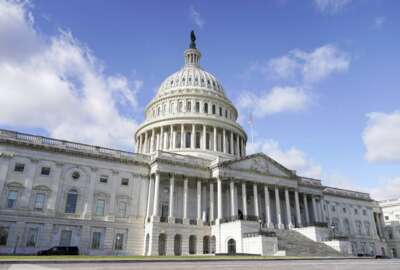In “Manhattan,” the television series based on the Manhattan Project, you wonder how, with all the sex, murder, intrigue and vicious internecine politics, The Gadget ever got built. The show, on which I’ve become hooked, gets brainy, weird Robert Oppenheimer right. The rest seems like what-might’ve-been fictionalization. One small, correct detail in the most recent season closer showed that the full scale test, dubbed Trinity, did in fact explode, launching the nuclear age.
The real story is intriguing enough. I’ve always liked the name “gadget” for the implosion-type bomb, a primitive thing by today’s standards, but a product of theoretical and engineering genius. I feel those project hands that knew the ultimate goal of the Manhattan Project — and most of the more than 100,000 employees out in the desert didn’t — used a trivial-sounding noun to mentally contain what they knew in reality was both awesome and terrible.
Nuclear debates and concerns have never faded away. But in recent decades, the thought of nuclear war has faded to more of an academic abstraction than the continuous, low-level fear it might have been in the 1950s and 1960s. Successive presidents have negotiated treaties for test bans and nuclear weapons reductions. Still, several nations retain considerable nuclear power, with none seemingly inclined to use them except if facing what defense planners call an existential threat. Maybe it’s the durability of the mutually assured destruction doctrine or some moral compunction, but the weapons stay in their tubes.
Now comes the latest test of something — no one seems sure what — by North Korea. Lots of world leaders wring their hands. Was it hydrogen fission? Did North Korean techs really “miniaturize” a nuke such that it fits into one of their missiles? Was China secretly behind the test despite its purported irritation?
All I know is at least two countries, North Korea and Iran, share an unpleasant mix of fanatical leaders who carefully nurse their hatreds, a fair degree of industrial sophistication and a hell-bent determination to become nuclear powers. Plus they have missiles. Iran seems richer than North Korea, where millions have starved over the years. I imagine if you’re starving in a remote North Korean gulag outpost, you’re indifferent to the geo-political yearnings of your dear leader, who’s chowing down on steak, caviar and champagne in Pyongyang.
The writers of “Manhattan” clearly take the position that the eventual bombings of Hiroshima and Nagasaki were morally ambiguous at best. It depicts scientists questioning what they’re doing and how it will be used. Even among those who believe that Harry Truman’s decision was justified given the time and circumstances under which it took place, you won’t find many who gleefully welcome the use of atomic bombs. What normal person does?
I see three main questions for the United States and other presumably responsible nations, as sketchy regimes like those in Tehran and Pyongyang obtain nuclear capability. One is technical: Do they have the systems, know-how, resources and political stability to safeguard these weapons over the long term? The other is moral. Do they realize what they are building and possess the sense to keep theirs in the tubes too? That leads to the third: What if they don’t?
Copyright
© 2024 Federal News Network. All rights reserved. This website is not intended for users located within the European Economic Area.






